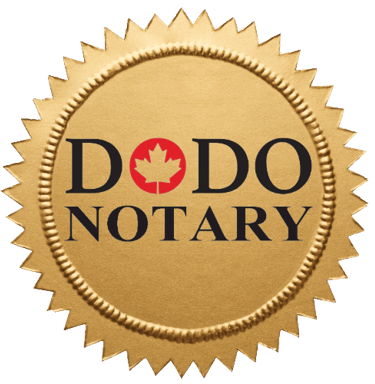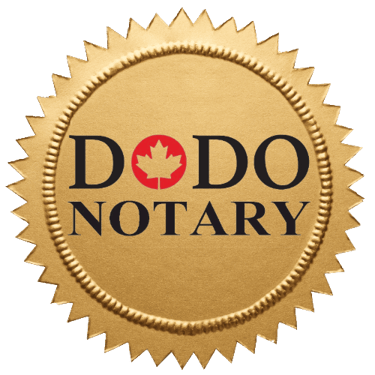What to Expect for a Power of Attorney in Ontario
Hanshah
8/6/20254 min read


Understanding Power of Attorney
A Power of Attorney (POA) is a legal document that empowers an individual to make decisions on behalf of another person. This legally binding authorization is critical in situations where an individual may be unable to attend to their own affairs due to illness, incapacity, or absence. The individual who grants this authority is known as the "grantor," while the person designated to act on their behalf is referred to as the "attorney." It is essential to understand that the attorney does not have to be a lawyer; in fact, it can be any trusted person chosen by the grantor.
One of the primary roles of an attorney under a Power of Attorney is to make decisions regarding the grantor's health care and personal care. This includes making choices about medical treatments, living arrangements, and preferences regarding end-of-life care. The attorney must act in the best interests of the grantor and adhere to any specific wishes or instructions outlined in the POA document.
In addition to personal care decisions, a Power of Attorney also encompasses financial matters. The Power of Attorney for Property grants the attorney the authority to manage financial investments, pay bills, and oversee other economic responsibilities. In the event that the grantor becomes incapacitated, having a POA ensures that someone is in place to handle their financial needs without unnecessary delays or legal complications.
In Ontario, there are two primary types of Power of Attorney: the Power of Attorney for Personal Care and the Power of Attorney for Property. Each serves distinct purposes and can be tailored to the grantor's specific needs. Understanding the nuances of these POAs is vital for anyone considering this important legal tool, as it equips individuals with the means to ensure their personal and financial affairs are managed according to their wishes, even when they cannot do so themselves.
Legal Requirements for Power of Attorney in Ontario
In Ontario, executing a Power of Attorney (POA) is subject to specific legal requirements aimed at ensuring the validity of the document and protecting the interests of individuals involved. One of the paramount requirements is the presence of at least two witnesses during the signing of the POA. These witnesses play a crucial role in validating the document and ensuring that it is executed in accordance with the law.
To qualify as a witness for a Power of Attorney in Ontario, an individual must meet certain criteria. Primarily, the witnesses must be at least 18 years of age and should not be named in the document as an attorney or a beneficiary. This requirement is essential in order to prevent conflicts of interest and ensure impartiality in the witnessing process.
Failure to comply with these legal formalities can have significant implications. A Power of Attorney that is improperly executed may be deemed invalid, which would ultimately defeat the purpose of the document. Individuals should pay careful attention to these requirements to protect their wishes and ensure that their authority is recognized and respected. These formalities also serve to uphold the intentions of the individual granting the POA, safeguarding them from potential misuse or fraud. In this light, understanding the legal requirements surrounding a Power of Attorney is essential for anyone considering this important legal instrument in Ontario.
Different Types of Power of Attorney Available
In Ontario, Canada, there are primarily two types of Power of Attorney (POA) that individuals can establish: the Power of Attorney for Personal Care and the Power of Attorney for Property. Each type serves distinct purposes and is utilized in different circumstances, making it essential to understand their functions to ensure that one’s needs are appropriately met.
The Power of Attorney for Personal Care is primarily concerned with health and personal matters. This type of POA grants an appointed individual, often referred to as an agent or attorney, the authority to make decisions regarding an individual's personal care in the event they become incapable of making those decisions themselves. This can include choices about medical treatment, housing, nutrition, and other daily care needs. This type of POA is crucial for individuals who wish to designate someone to advocate for their health and well-being in dire situations, ensuring that their personal beliefs and values are respected.
On the other hand, the Power of Attorney for Property concerns financial matters. This enables the designated agent to manage and make decisions about the individual's financial assets. Responsibilities under this arrangement can include handling banking, managing investments, and making property-related decisions. Individuals may find this type particularly vital as they age or face health issues that could impair their financial judgment, providing peace of mind that their financial interests are in trustworthy hands.
Identifying whether to create one or both types of POA is a decision that varies based on personal circumstances. It is often beneficial to consult legal advice to select the most suitable option tailored to individual needs. Understanding these distinctions helps ensure that proper measures are taken to protect personal and financial well-being, thereby empowering individuals to plan effectively for their future.
Understanding the Costs of Notary Services for Power of Attorney
In Ontario, the process of notarizing a Power of Attorney (POA) can incur significant costs, often more than the notarization of standard documents. The fees associated with notary services for a POA can vary widely, influenced by multiple factors that contribute to the overall expense. One of the primary reasons for the increased costs is the complexity inherent in creating a Power of Attorney. Unlike simple documents, a POA requires careful contemplation of the principal's intentions, the legal implications of the Powers granted, and the specific provisions that need to be included to ensure that the document meets legal standards.
Additionally, the need for legal expertise further elevates the costs associated with notarizing a Power of Attorney. Notaries typically charge for their professional time, which involves reviewing the document, and ensuring that all elements of the POA conform to Ontario law. This expertise helps protect against future legal challenges or disputes that may arise regarding the validity or interpretation of the document.
Moreover, the process of ensuring a Power of Attorney's validity may involve additional steps, such as witnessing the signing of the document or requiring specific identification to verify the identities of all parties involved. This thorough approach not only secures the POA but also contributes to the overall cost of notary services.
When selecting a notary for a Power of Attorney, it is prudent to consider their qualifications, experience, and the fees they charge. Not all notaries have the same level of expertise in handling powers of attorney, and this can directly influence the reliability of the document and the potential financial implications stemming from it. Investing in quality notary services can provide peace of mind, as it ensures that the POA is comprehensive and legally sound.


